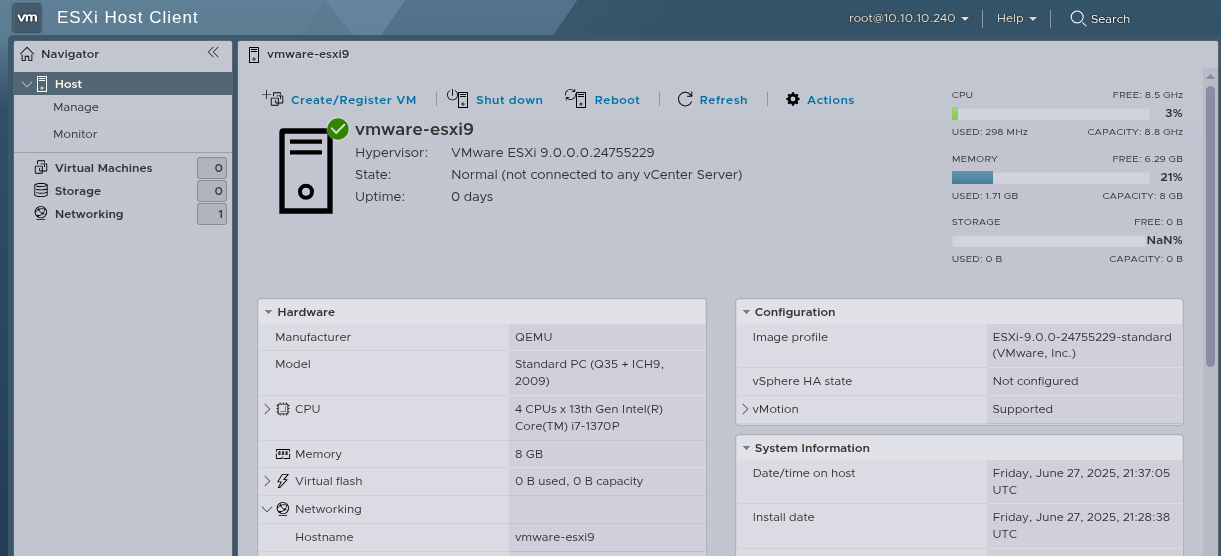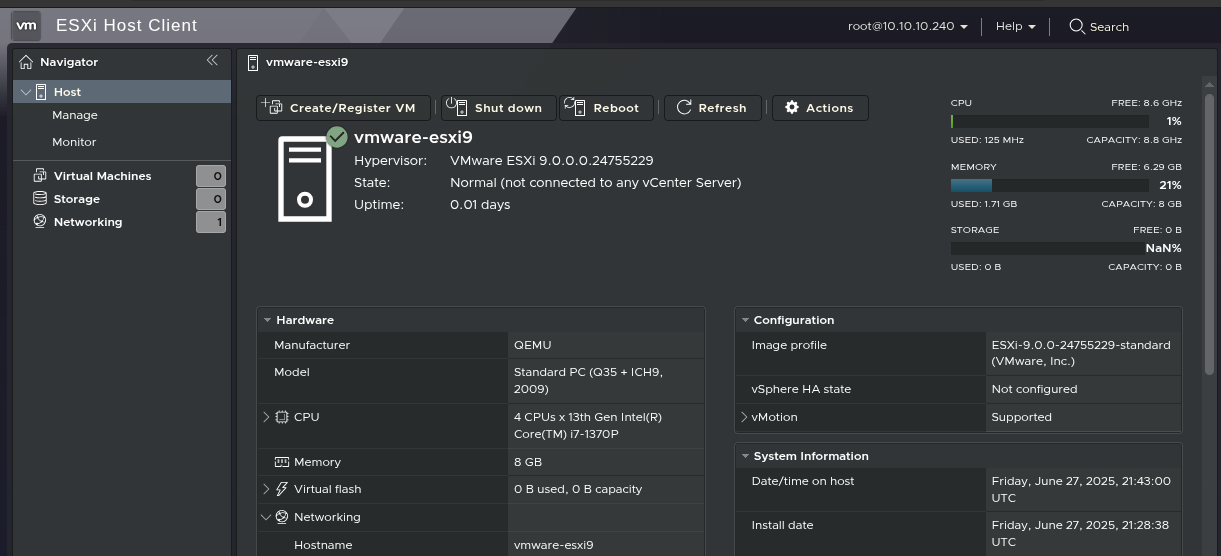Prerequisites:
- hardware support for VT-x
- enabled nested virtualization for KVM
Use below command to create KVM virtual machine containing VMware ESXi:
virt-install --virt-type=kvm --name=vmware-esxi9 \
--ram 8192 --vcpus=4 \
--virt-type=kvm --hvm \
--cdrom /home/pawel/ISO/VMware/VMware-VMvisor-Installer-9.0.0.0.24755229.x86_64.iso \
--network network:default,model=vmxnet3 \
--graphics vnc --video qxl \
--disk pool=default,size=32,sparse=true,bus=sata,format=qcow2 \
--boot cdrom,hd --noautoconsole --force \
--cpu host-passthrough --os-variant linux2020
--ram 8192 --vcpus=4 \
--virt-type=kvm --hvm \
--cdrom /home/pawel/ISO/VMware/VMware-VMvisor-Installer-9.0.0.0.24755229.x86_64.iso \
--network network:default,model=vmxnet3 \
--graphics vnc --video qxl \
--disk pool=default,size=32,sparse=true,bus=sata,format=qcow2 \
--boot cdrom,hd --noautoconsole --force \
--cpu host-passthrough --os-variant linux2020
Key difference comparing to ESXi 7.0/8.0 and older KVM versions:
- ESXi 9.0 oficially requires 8GB RAM (real ESXi idle memory usage 1.7GB)
- ESXi 9.0 oficially requires UEFI instead of BIOS, but it its able to run on systems with BIOS

